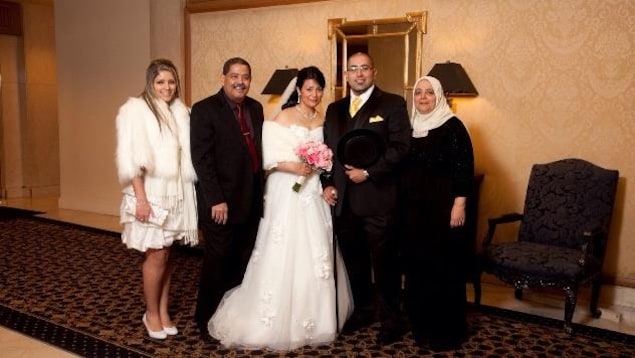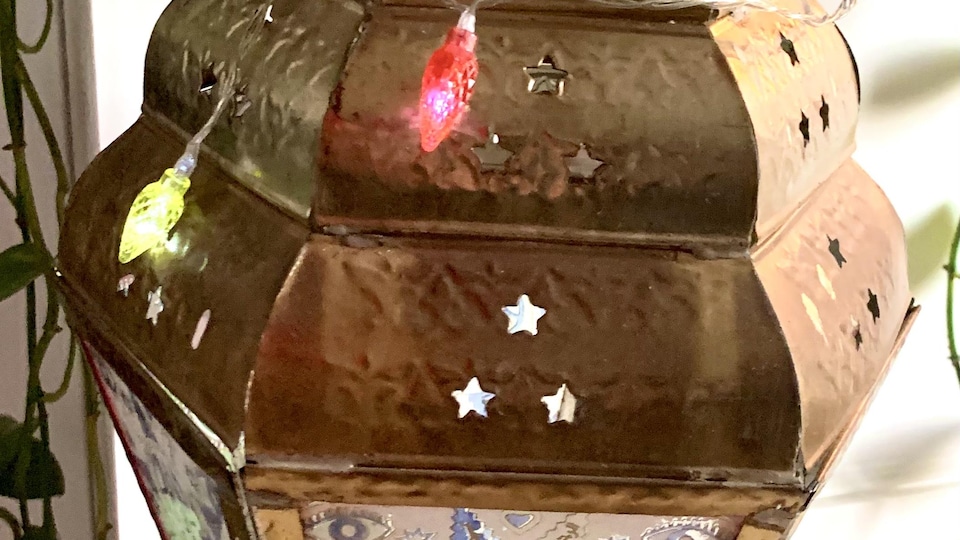Amal Fahim, her husband and two children try to preserve Egyptian traditions during Ramadan, as they try every year to recreate the festive atmosphere in Egypt.
In Egypt, Ramadan is a very special month. The streets are decorated in honor of the holy month. Mosques are full, and families and friends – even non-Muslim friends – congregate during this time
She explained.
She points out that the gatherings during this holy month for Muslims are an essential part of Egyptian culture.
Ms. Fahim explains that when she was little, parents used to give lanterns to the children as gifts to mark the beginning of the month.
Famous Egyptian songs were played in homes and businesses to celebrate the advent of the holy month.
She explains that this period is also the most important in terms of television production in Egypt.
During the year the TV series is being prepared to air nationwide at the start of Ramadan. Having a family in front of a TV series is also a form of traditional family gathering.
And the She adds.
Every year during Ramadan, workplaces in Egypt allow working days to be shortened so that employees can prepare for iftar.
To recreate the Ramadan atmosphere in her homeland, Ms. Fahim and her family decorate their homes in Ajax, gather daily for breakfast, and try to watch family series.
Unlike Egypt, lanterns are becoming decorative, the duration of the fast is longer, and the working days are not shortened. Thus, all of these traditions follow one another in a modified and shorter way.
Mrs. Fahim and her family have also preserved all Egyptian culinary habits.
They prepare foul, a popular dish from Egypt, for consumption before dawn to reduce hunger during fasting, and apricot juice is also usual at breakfast time.
Egyptian dishes are inspired by the culture of the Mediterranean and North Africa. On the other hand, fish make you feel thirsty and never eat during Ramadan, as fish are only for Eid.
Ms. Fahim, a Toronto kindergarten teacher, says that regardless of the epidemic, the school administration is encouraging diversity and learning about different religions.
For her part, she tries to explain to children the importance of Ramadan for Muslims.
Fahim’s daughter, Iman Sadeq, explains that the atmosphere in Canada where she grew up is different from Egypt due to professional commitments: Regardless of the epidemic, the day is more crowded, commuting to work is long and we have to wake up early during the week. So the traditions before dawn or at night are not easy, but we try to recreate the feelings of celebration as best we can.
She explained.
She adds, however, that in recent years she has witnessed a development in understanding Islamic traditions in society, and notes that celebrations have become more and more natural in business.
She points out that before the start of the fasting period, many supermarkets designated special spaces to sell, among other things, dates, figs and dried fruits, which are traditional Ramadan foods.
Ms. Sadiq notes that the pandemic of Ramadan is easier, and it has allowed her family to find creative ways to celebrate this time. Last year there was a lot of anxiety, the news followed us every day, and this year we have a better understanding of how to live with COVID.

“Alcohol scholar. Twitter lover. Zombieaholic. Hipster-friendly coffee fanatic.”


